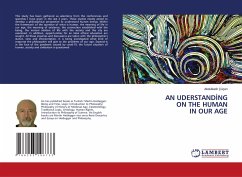The concept and attempts at cloning are not novel. However, the birth of Dolly (Lamb 6LL3) in 1997 not only brought the subject to the public domain but it also led to furious debates as regards the morality or otherwise of the application of such a techbique to humans.This work attempts to critically examine most of the arguments profferred both for and against human cloning. This involves looking at the process of cloning itself its attendant risks and supposed benefits. The author then addresses and sheds light on some of the difficult metaphysical issues of personal identity, dignity and autonomy; ones that form some of the strongest arguments against human cloning. Arguments on the other side of the moral wedge are likwise examined in detail.This work will be especially useful to those interested in philosophy, biothics, medical ethics and the application of new biotechnologies to human and other related affairs.
Hinweis: Dieser Artikel kann nur an eine deutsche Lieferadresse ausgeliefert werden.
Hinweis: Dieser Artikel kann nur an eine deutsche Lieferadresse ausgeliefert werden.








